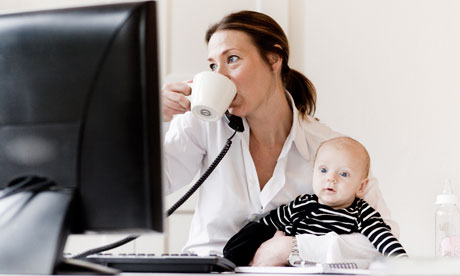Feminism has failed working-class women by focusing too much on gender equality in high-profile roles, according to new research.
While the average gap between the earnings of men and women has narrowed in the last 50 years, differences between professional and unskilled women are significantly higher than those between the same groups of men, a report by the Institute for Public Policy Research (IPPR) has found.
With or without a university degree, men continue to earn more than their female counterparts. But researchers found that women with a degree born in 1958 earned nearly three times as much (198%) as women in unskilled jobs born in the same year – compared to a difference of less than half (45%) between men in the same groups.
Dalia Ben-Galim, associate director of the IPPR, said: "While feminism has delivered for some professional women, other women have been left behind. Many of the advances for women at the top have masked inequality at the bottom.
"The 'break the glass ceiling' approach that simply promotes women in the boardroom has not been as successful in changing family-friendly working culture or providing opportunities for other women to advance.
"Gender still has a strong independent impact on women's earnings prospects – but class, education and occupational backgrounds are stronger determinants of a woman's progression and earnings prospects."
Motherhood was also a key factor, with women who had children earlier seeing their earnings prospects decrease compared to those who postponed starting a family, the study found. For men, the reverse was true, as fathers enjoyed a "fatherhood pay bonus" that saw them earn more than men without children.
The IPPR called for a more progressive parental leave system, more affordable and accessible childcare and better paid part-time jobs to address these issues.
It also warned against the "decoy effect" of focusing on women in high-profile positions, and said the breaking-down of stereotypes should be the priority.
The report found that the number of "house husbands" in Britain has trebled over the last 15 years, with 62,000 men staying at home to care for their family and remaining economically inactive. But most women (77%) said they do more housework than their husbands, with just one in ten (10%) married men doing an equal amount and 13% doing more.
And researchers discovered that British men and women increasingly marry partners from the same social group, with a decline in women "marrying up" and a small increase in women "marrying down".
Original Article
Source: guardian.co.uk
Author: PA
While the average gap between the earnings of men and women has narrowed in the last 50 years, differences between professional and unskilled women are significantly higher than those between the same groups of men, a report by the Institute for Public Policy Research (IPPR) has found.
With or without a university degree, men continue to earn more than their female counterparts. But researchers found that women with a degree born in 1958 earned nearly three times as much (198%) as women in unskilled jobs born in the same year – compared to a difference of less than half (45%) between men in the same groups.
Dalia Ben-Galim, associate director of the IPPR, said: "While feminism has delivered for some professional women, other women have been left behind. Many of the advances for women at the top have masked inequality at the bottom.
"The 'break the glass ceiling' approach that simply promotes women in the boardroom has not been as successful in changing family-friendly working culture or providing opportunities for other women to advance.
"Gender still has a strong independent impact on women's earnings prospects – but class, education and occupational backgrounds are stronger determinants of a woman's progression and earnings prospects."
Motherhood was also a key factor, with women who had children earlier seeing their earnings prospects decrease compared to those who postponed starting a family, the study found. For men, the reverse was true, as fathers enjoyed a "fatherhood pay bonus" that saw them earn more than men without children.
The IPPR called for a more progressive parental leave system, more affordable and accessible childcare and better paid part-time jobs to address these issues.
It also warned against the "decoy effect" of focusing on women in high-profile positions, and said the breaking-down of stereotypes should be the priority.
The report found that the number of "house husbands" in Britain has trebled over the last 15 years, with 62,000 men staying at home to care for their family and remaining economically inactive. But most women (77%) said they do more housework than their husbands, with just one in ten (10%) married men doing an equal amount and 13% doing more.
And researchers discovered that British men and women increasingly marry partners from the same social group, with a decline in women "marrying up" and a small increase in women "marrying down".
Original Article
Source: guardian.co.uk
Author: PA

No comments:
Post a Comment